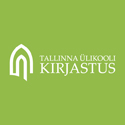Esimene maailmasõda eestlaste mälestustes [The First World War in Estonian Memoirs]
Abstract
Estonian participation in the Russian Army in the Great War remains virtually invisible in relation to the dominant narratives of the Western Front and Eastern Front. Perhaps this peripherality is sufficient reason to foreground it through personal narratives of common soldiers. „Memory sources“ require attention to the conditions of their textual production, the poetics of their composition, and their uses of rhetoric with respect to a (familial or more extensively public) readership. Though war diaries are often imparted a greater trustworthiness than memoirs, ostensibly because of their immediacy or simultaneity with events, retrospective personal accounts often artfully make use of diary conventions. This article examines the World War I diaries of Estonian soldiers from the archives, and those recently made available to the general public in a monumental publication, historian Tõnu Tannberg’s 2015 edited collection of heretofore unpublished Estonian World War I letters, memoirs, and diaries. First the article addresses the trope of the „simple soldier“ with limited schooling, and the paradox that such writers often show a remarkable capacity for observation and articulation. However „simple“ a remembered account may seem, its rhetorical dimension is social, thus historical, as are the narrative scaff olding and texture. As a counterpoint, this article also examines the literary memoirs of World War I written by popular author Oskar Luts, who participated in the war as a pharmacist, and asks the question of what textual resources make memoirs „literary“.Thirdly, the article considers interpretive templates for the contextual analysis of 196 Estonian memory texts from this period. Indeed, for Estonia, there was no „lost generation“ or „generation of 1914“, as Robert Wohl has defi ned it. The Russian Revolution of 1917, the German occupation of Estonia in 1918, the birth of the Estonian Republic in February 1918, and the War of Independence 1918–1920 were a chaotic cascade of events. In the following decades in the Estonian Republic assigned priority of memorability to the War of Independence, and to the World War I experience of those Estonian officers who went on to lay a foundation for the cadre of the armed forces of the Estonian Republic between the wars. This cumulation and acceleration of events obscured the previous layers, thus permanently sedimenting and occluding the cultural memory of World War I beneath these layers. Mapping the absence or occlusion of World War I remembrance through the use of autobiographical texts or textual remains is a topic of renewed research in the context of the hundred-year anniversary of World War I across Europe.
Keywords
World War I, autobiographical memory, diaries, soldiers, masculinity, cultural memory.
Full Text:
PDFDOI: https://doi.org/10.22601/2015.17.%25x
Refbacks
- There are currently no refbacks.
Published by / Kirjastaja:

ISSN 2504-6616 (print/trükis)
ISSN 2504-6624 (online/võrguväljaanne)
